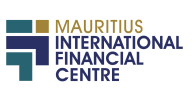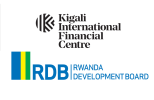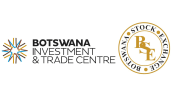Understanding the Nigeria Stock Market
Navigating the financial landscape can be daunting, especially when it comes to understanding stock markets. The Nigeria Stock Market, a vital part of the country’s economy, is no exception.
This article aims to demystify the Nigeria Stock Market for you. We’ll delve into its operations, the significance of the Nigeria stock market price list, and how to interpret the Nigeria stock exchange price list.
Whether you’re a potential investor, a financial student, or just curious, this guide will provide you with a comprehensive understanding of the Nigeria Stock Market.
Overview of the Nigeria Stock Market
The Nigeria Stock Market, managed by the Nigerian Stock Exchange (NSE), plays a crucial role in the country’s economy. It serves as a platform for buying and selling securities, primarily stocks.
The market is regulated by the Securities and Exchange Commission (SEC). This body ensures fair trading practices and investor protection.
The Nigeria Stock Market reflects the health of the Nigerian economy. It’s a barometer for the country’s economic performance and investor confidence.
Understanding its workings is key to making informed investment decisions.
How the Nigeria Stock Market Operates
The Nigeria Stock Market operates on weekdays, excluding public holidays. Trading hours are from 10:00 am to 2:30 pm.
Investors buy and sell stocks through licensed stockbrokers. These brokers execute trades on behalf of investors.
The market operates on a supply and demand basis. Stock prices fluctuate based on the number of shares investors want to buy or sell.
Significance of the Nigeria Stock Market Price List
The Nigeria stock market price list is a vital tool for investors. It provides the current prices of all listed stocks.
This list helps investors make informed decisions. They can track price movements and identify investment opportunities.
In essence, the price list guides investment strategies. It aids in determining when to buy or sell stocks.
Accessing and Reading the Nigeria Stock Exchange Price List
The Nigeria Stock Exchange price list is accessible online. It’s updated daily on the official NSE website.
The list displays the stock’s name, symbol, and current price. It also shows the highest and lowest prices for the day.
Understanding this list is crucial. It helps investors monitor market trends and make informed investment decisions.
Key Indices and Major Sectors
The Nigeria Stock Market uses indices for tracking market performance. The NSE All-Share Index is the most notable.
Major sectors in the market include banking, oil and gas, and telecommunications. These sectors significantly influence the market’s performance.
Investors often monitor these sectors and indices to guide their investment decisions.
The Role of Stockbrokers in Nigeria
Stockbrokers play a crucial role in the Nigeria Stock Market. They act as intermediaries between investors and the market.
They assist investors in buying and selling stocks. They also provide advice on investment decisions.
Choosing a reliable stockbroker is vital for successful trading in the Nigeria Stock Market.
Understanding Market Capitalization and Stock Value
Market capitalization refers to the total value of a company’s outstanding shares of stock. It’s a key indicator of a company’s size and stability in the Nigeria Stock Market.
Stock value, on the other hand, is the price of a single share of a company’s stock. It’s determined by various factors including the company’s earnings, assets, and market conditions.
Understanding these concepts is crucial for making informed investment decisions in the Nigeria Stock Market.
Benefits and Risks of Investing in the Nigeria Stock Market
Investing in the Nigeria Stock Market offers several benefits. It provides an opportunity for wealth creation and income through dividends. It also allows participation in the economic growth of the country.
However, investing in stocks also comes with risks. Market volatility can lead to losses, and some companies may fail or underperform.
Therefore, understanding the Nigeria Stock Market and making informed decisions is crucial to mitigate these risks.













































